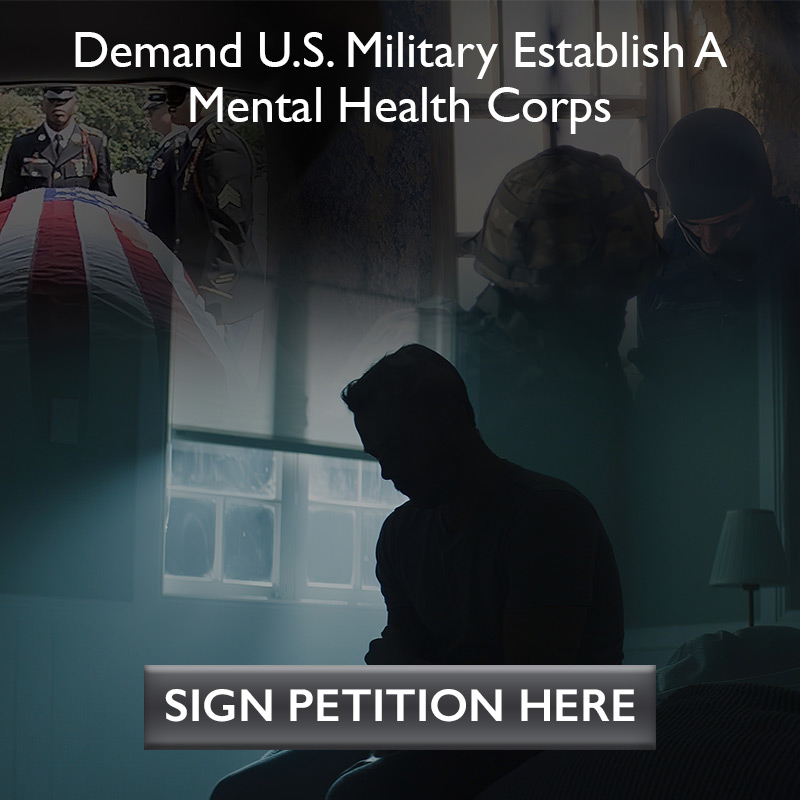A Documentary Producer’s Unwavering Belief In The Power Of Authenticity
It’s the right thing to do.
Today, that’s my answer when anyone asks, “Why should I fund, distribute, broadcast, watch, even care about this documentary?”
My name is Beth Dolan. I am a filmmaker, cinematic journalist, writer and storyteller of the human condition. January 2019 marked the five year anniversary of me and my filmmaking team committing to making “Stranger At Home”, a documentary intended to illuminate the wholly unnecessary American Military Mental Health crisis.
And by crisis, I mean all that nasty veteran and active duty soldier stuff that we continue to hear about. You know, those unpleasant statistics and details: 22 reported Military-related suicides per day, close to 38,000 homeless veterans on any given night (2018), rampant alcohol and drug addiction, broken families, unemployment, incarcerations and gun massacres. Yes, it’s all so relentlessly in our face, so let’s face it and just accept that our service members – veteran and active duty – struggling with untreated psychological and emotional injuries can eventually go down some really bad rabbit holes, all at great cost (both human and economic) to themselves, those who love them and society overall.
This is what I’ve leaned: There’s no upside to untreated and unhealed trauma in general… war trauma especially. And while the film illuminates our country’s greatest shame, in my opinion – that this crisis even exists – “Stranger At Home” also presents the very doable, reasonable and ethical solutions to end this crisis now. Not further along the road. Now.
“Our service members – veteran and active duty — struggling with untreated psychological and emotional injuries can eventually go down some really bad rabbit holes.”
And here’s a documentary spoiler alert, folks, MOST of the solutions presented in the film come from the Military’s own exhaustively researched studies and recommendations. Over 100 years of combat and war stress injury studies to be more precise. Oh, boy, now, I can really hear your burning questions…
Wait, wait, so what you’re telling me is that the Military has the answers to end their own, self-inflicted mental health crisis? They’ve got their evidenced-based findings, along with their recommended policies and treatments to provide adequate mental healthcare for the psychological/emotional wounds of their people – our service members – and all of this has been documented in volumes upon volumes?
Yes and yes.
So, what you’re saying is that all the crap, that you’re right, we’re all so fu#@#% sick of hearing, ‘cause it’s just too awful to even think about … ALL that could be prevented, at the very least, significantly lessened, and the Military knows exactly what to do to make that happen? They’ve actually endlessly – over a hundred years worth anyway – recommended what oughta be done to put an end to so much needless human suffering?
Yes and yes.
And they’re not doing it?
Yes. Deliberately so.
OMG, really?!
Yes, that “deliberate” bit gets people. It stunned me, too, broke my heart for sure when I first turned over that rock on the journey of making this film. It’s also become the big WHAT at the core of our storytelling in the documentary.
See, in order for this film to be a part of facilitating real change versus just adding to the lip service, we had to put a pin in the overly-inflated patriotic balloon, pop that sucker, just be dead honest and explain what is really going on; the implied mantra the United States Military repeatedly chants to the public – we’ve got our soldiers’ backs – it’s simply not true.
You mean, the huge deal “pet the vet” displays at national sporting events and such is for show and nothing more?
Again, as far as adequate mental healthcare with no stigma for their membership goes, the heads of Military Medicine are deliberately neglecting following their own recommendations. You can have parades, tie ribbons around trees, throw homecoming barbecues, do the whole football stadium jumbotron thing, but the bottom line is – They don’t truly have their backs.
More specifically, there is NO Mental Health Corps in the Military. They have a Chaplain Corps, a Dental Corps, a Nursing Corps, a Veterinary Corps (for the service dogs), and a Corps for every other department deemed essential and important, yet NO Mental Health Corps.
Moreover, once someone is discharged, there’s no mental health reconditioning program in place for them and their family members. There used to be. A successful one, too. It was long ago, mandated by President Roosevelt at the close of WW II, yet that program was tossed aside shortly after the war, and never reinstated in subsequent wars as an essential and important mental health treatment plan to help our soldiers return home and become healthy members of society again.
So, as documentarians, wanting to be accurate and authentic with our message, we had to start there, you know, with that fact – They don’t truly have their backs. Otherwise, there won’t be a listening for the solutions we offer in the film. Solutions, by the way, that when implemented would change the mental healthcare paradigm, not only in the Military, but in society overall. Exciting to imagine, really. In fact, we can do more than imagine. These very reforms to Military Mental Health have been implemented with overwhelming success in other countries. For example, the British and Israeli Militaries have significantly lowered their suicide and PTSD rates by engaging the very treatments and policies the American Military has recommended, yet again, doesn’t act upon.
“The implied mantra the United States Military repeatedly chants to the public – we’ve got our soldiers’ backs – it’s simply not true.”
Recently, I was speaking with an active duty officer in the Marine Corps, who challenged our discoveries and reminded, “we’re in the business of winning wars, not in the business of mental health.” And I said to him, “I understand that, but doesn’t winning wars require the most mentally fit people possible? When the importance and celebration of mental, and dare I say, spiritual fitness/wellness is ignored (NO Mental Health Corps!), placed on a lower rung than physical fitness and wellness, I’m no Military expert, but it seems to me you’re not going to be doing a lot of winning. In fact, from what I’ve learned, from what the facts and the experts we’ve spoken to tell us, soldiers receiving inadequate mental healthcare will eventually (certainly after multiple deployments) be more of a danger to themselves and their colleagues in those life and death scenarios. Good mental fitness equals exemplary readiness… readiness to win wars, right?” He hadn’t thought about that and just stared at me, not sure what to say.
Written By: Beth Dolan, lead Producer for “Stranger At Home”
Producer’s Post Script: “Stranger At Home” is in the editing phase of our production at this time, with the intention to have a fully assembled cut of the film ready for release by Spring 2019. Funding remains crucial for us to meet this goal and we welcome your help in this way. You can donate directly through this site, or for more contribution options and information, you can contact the production office directly (626) 248-8056. Thank you!

